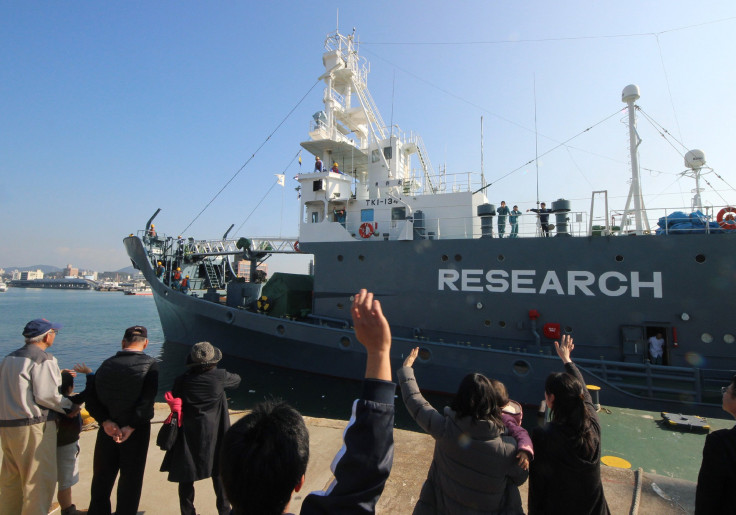Japan Whaling: Australia Threatens Legal Action As Tokyo Says World Must 'Agree To Disagree'

Australia is once again mulling dragging Japan to the International Court of Justice (ICJ) in an attempt to halt the killing of whales in the Antarctic. In a statement released Monday, the Australian government -- which had, in 2010, filed a lawsuit with the ICJ over the Asian country's annual whale hunt -- said that it has joined 32 “like-minded nations” to protest Japan’s decision to resume the hunt.
“The Australian Government does not support what is a deeply disappointing decision by Japan and we will continue to raise our concerns at the highest level of the Japanese Government,” Australian Foreign Minister Julie Bishop and Environment Minister Greg Hunt said, in the joint statement. “We are working with other like-minded nations to build international consensus against Japanese whaling. We are also exploring options for further legal action.”
According to an estimate by the World Wide Fund for Nature, Japan has killed over 8,200 minke whales in the Antarctic since 1986, in an apparent defiance of an international moratorium on commercial whaling.
Last year, the ICJ ruled that Japan's annual whale hunt was part of a commercial venture, and not intended for research, as claimed by the Japanese government. Following the ruling, the country stopped its whaling activities for a year.
However, earlier this month, a Japanese whaling fleet left for Antarctica -- effectively ending the country’s self-imposed suspension. In a revised plan submitted to the International Whaling Commission (IWC), Tokyo cut the number of minke whales it usually hunts in a year by two-thirds to 333.
Japan has long maintained that most whale species are not endangered and eating whale is part of its culture. Attempts to stop the whale hunt are perceived by many Japanese as a threat to their culture and tradition.
Speaking to reporters Monday, Joji Morishita, the Japanese representative to the IWC, defended his country’s actions, arguing that the world must “agree to disagree” on the issue.
“We did our best to try to meet the criteria established by the International Court of Justice, and we have decided to implement our research plan, because we are confident that we completed the scientific homework,” Morishita reportedly said. “However, this does not mean that we will take all whales -- exactly because we'd like to have sustainable whaling, we'd like to have a healthy whale population.”
Also on Monday, New Zealand joined the international protest against Japan’s plans to resume the hunt, with Prime Minister John Key urging Tokyo to respect international consensus and the advice of the IWC.
“We consider that there is no scientific basis for the slaughter of whales and strongly urge the Government of Japan not to allow it to go ahead,” Key said, in a statement, adding that a total of 33 countries, including the U.S., Mexico, South Africa and the European Union member nations, had expressed concerns over Japan’s actions.
© Copyright IBTimes 2024. All rights reserved.





















